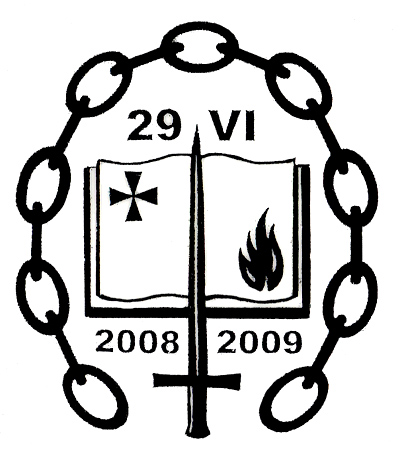Come, O true light!
Come, O eternal life!
Come, O hidden mystery!
Come, O indescribable treasure!
Come, O ineffable thing!
Come, O inconceivable person!
Come, O endless delight!
Come, O unsetting light!
Come, O true and fervent expectation
of all those who will be saved!
Come, O rising of those who lie down!
Come, O resurrection of the dead!
Come, O powerful one,
who always creates and re-creates and transforms
by your will alone!
Come, O invisible and totally intangible and untouchable!
Come, O you who always remain immobile
and at each moment move all,
and come to us, who lie in hades,
you who are above all heavens.
Come, O desirable and legendary name,
which is completely impossible for us
to express what you are or to know your nature.
Come, O eternal joy!
Come, O unwithering wreath!
Come, O purple of the great king our God!
Come, O crystalline cincture,
studded with precious stones!
Come, O inaccessible sandal!
Come, O royal robe
and truly imperial right hand!
Come, you whom my wretched soul
has desired and does desire!
Come, you who alone go to the lonely
for as you see I am lonely!
Come, you who have separated me from everything
and made me solitary in this world!
Come, you who have become yourself desire in me,
who have made me desire you,
the absolutely inaccessible one!
Come, O my breath and life!
Come, O consolation of my humble soul!
Come, O my joy, my glory, and my endless delight!
I thank you that you have become one spirit with me,
without confusion, without mutation,
without transformation, you the God of all;
and that you have become everything for me,
inexpressible and perfectly gratuitous nourishment,
which ever flows to the lips of my soul
and gushes out into the fountain of my heart,
dazzling garment which burns the demons,
purification which bathes me
with these imperishable and holy tears,
that your presence brings to those whom you visit.
I give you thanks that for me
you have become unsetting light
and non-declining sun;
for you who fill the universe with your glory
have nowhere to hide yourself.
No, you have never hidden yourself from anyone
but we are the ones who always hide from you,
by refusing to go to you;
but then, where would you hide,
you who nowhere find the place of your repose?
Why would you hide,
you who do not turn away from a single creature,
who do not reject a single one?
Today, then, O Master,
come pitch your tent with me;
until the end, make your home
and live continually, inseparably within me,
your slave, O most-kind one,
that I also may find myself again in you,
at my departure from this world
and after my departure may I reign with you,
O God who are above everything.
O Master, stay and do not leave me alone,
so that my enemies,
arriving unexpectedly,
they who are always seeking to devour my soul,
may find you living within me
and that they may take flight,
in defeat, powerless against me,
seeing you, O more powerful than everything,
installed interiorly in the home of my poor soul.
Yea, O Master, just as you remembered me,
when I was in the world
and, in the midst of my ignorance,
you chose me and separated me from this world
and set me before your glorious face,
so now keep me interiorly,
by your dwelling within me,
forever upright, resolute;
that by perpetually seeing you,
I, the corpse, may live;
that by possessing you,
I, the beggar, may always be rich,
richer than kings;
that by eating you and by drinking you,
by putting you on at each moment,
I go from delight to delight
in inexpressible blessings;
for it is You, who are all good and
all glory and all delight
and it is to you,
holy, consubstantial, and life-creating Trinity
that the glory belongs,
you whom all faithful venerate, confess, adore, and serve
in the Father, the Son, and the Holy Spirit,
now and ever and unto the ages of ages. Amen.
St Symeon the New Theologian
"Do not say that it is impossible to receive the Spirit of God. Do not say that it is possible to be made whole without Him. Do not say that one can possess Him without knowing it. Do not say that God does not manifest Himself to man. Do not say that men cannot perceive the divine light, or that it is impossible in this age! Never is it found to be impossible, my friends. On the contrary, it is entirely possible when one desires it"












